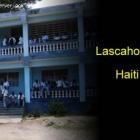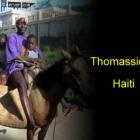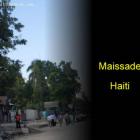ADVERTISEMENT
Dominican Tips - Haiti Observer Blog
Dominican Tips, Haiti Observer Blog. Read the following articles about Dominican Tips
Parsley Massacre - Slaughtering of Haitians By The Dominicans
Haiti was under military occupation for around 19 years. In the Dominican Republic from 2nd October 1937 to 4th October 1937 fifteen thousand to twenty thousand immigrant workers from Haiti were massacred. Machetes and bayonets were used to slaughter them by big landowners and the army in Dominican Republic.
Pitchforks were used to spear women and heads of infants were smashed against the walls. No firearms were used in the Parsley Massacre. The ones who tried to escape were captured at the border and then killed.
The Dominican Republic and Haitian Sugarcane Workers
In the Dominican Republic the communities inside the sugarcane plantations are called batey. Many Haitians and Dominicans who have migrated from Haiti, work in the sugarcane plantations. Many people from Haiti have been fleeing Haiti to work as seasonal laborers in the sugarcane industry in Dominican Republic.
Poor Working Conditions
Access to healthcare and working and living conditions in the Dominican Republic are very often poor. There is lack of electricity, sanitary facilities and running water. After Christopher Columbus's colonization, the sugarcane plant was introduced.
However it was in the 1900s that the sugarcane industry started in the Dominican Republic with United States acting as a catalyst for developing it. In 1905 the DR was controlled by the United States under the Big Stick policy of Roosevelt. In 1915, Haiti was invaded by troops from America. Political stability was established in the island after the occupation of United States.
Antihaitianismo, a racial prejudice manifested In Dominican Culture
The Hispaniola Island is shared by the Dominican Republic and Haiti for around 150 years. But both countries do not share an amicable relationship. Antihaitianismo is a set of anti prejudices that have been created by antagonism in the Dominican Republic.
Evolution Of Racial Prejudice
Antihaitianismo is the evolution of racial prejudices manifested for a long time, misinterpretation of selective historical facts and creation of false consciousness in the Dominican Republic. The elite groups, who were powerful and having strong interests to defend, orchestrated the long term revolution.
Inhabitants from Spain colonized Santo Domingo and it was then that racial prejudices started leading to antihaitianismo. Racial prejudice, slavery besides sugar was brought to the island due to Spanish colonization. Administration was controlled by elite white Spanish who ruled over the slaves and creoles.
Haiti And Dominican Republic, Geographical And Historical Differences
While Haiti suffers, Dominican Republic is well off and occupies Caribbean Island of Hispaniola up to around 30,000 sq m. It is filled with resorts, is prosperous and healthy while Haiti continues to be poverty stricken. The Dominican Republic is ranked 90th on the human development index out of the 182 countries while Haiti comes 149th.
In Haiti the life expectancy is 61 years while in the Dominican Republic it is 74 years. In case a person lives on 2/3rds of eastern Hispaniola then he is more likely to write and read and live on less than 1.25 dollars a day.
Haitians traveling to the Dominican Republic become victims of Crime
Tourists going to the Dominican Republic are finding the visit a bit dangerous. In this regard the latest victim has been Patrick Alexis. On December 12, 2012, several bandits assaulted him with stones, injuring parts of his body and face.
Who Were The Victims Of Banditry
Patrick Alexis who had been assaulted by bandits received some medical care at the Dominican Republic's local hospital and he is fine at present.
He is not the only Haitian victim of crime. There have been others like the Minister of Haitians Living Abroad, Jean Tolbert Alexis, Paul Evans, Daniel Supplice and Daniel Torment who all have been subjected to assault by bandits in Haiti.
Our objective is to share with you news and information about Haiti and the people of Haiti. Traditions, habits and the way we were or grew are alive in this site. We highly recommend that you Subscribe to our Newsletter and also share with us some of the things that are memorable and made us unique people.

 Lascahobas, Haiti
Lascahobas, Haiti  Black Friday Shopping Season
Black Friday Shopping Season  Thomassique, Haiti
Thomassique, Haiti  Maissade, Haiti
Maissade, Haiti  Life After Death
Life After Death